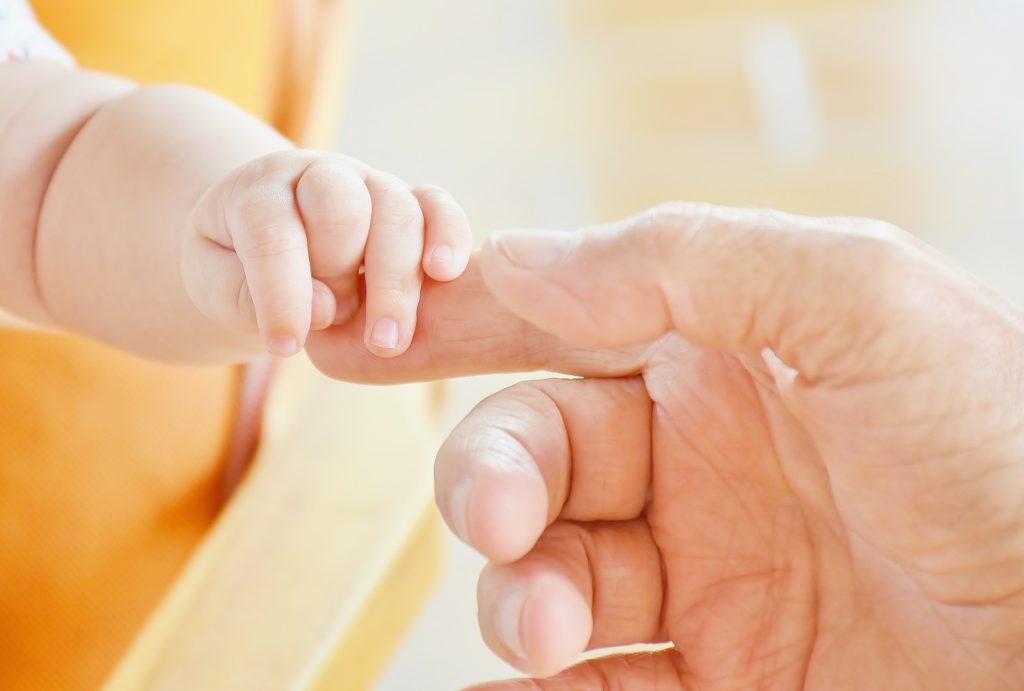
Guest article by Ashley Taylor
Parenting young children, in general, is not for the weak. Our beloved little rugrats place heavy demands on our physical, mental and emotional energies. Therefore, if what you bring to the changing table is a disability of any sort, there is no doubt that parenting for you will consist of some extra challenges, and it is understandable if you are nervous.
Realize, however, that there is no such thing as the perfect parent. We each come with strengths and weaknesses in different forms. Whatever your disability, you can do this. By making some special preparations and plugging into a supportive community, no matter your personal limitations, you can provide your child with a happy, healthy and loving home.
Home preparations
In preparation for your baby, make your home a place where you can easily and safely meet the needs of both yourself and your baby.
Begin with the entrance to your home. Consider replacing stairs that lead to your front door with a ramp. This adjustment will save you energy, enable you to safely carry your baby inside without fear of falling, and provide convenience when needing to transport things such as strollers or groceries from the car.
For ease of mobility throughout your home, keep the space well-lit and free of hazardous clutter. Install expandable door hinges, which add extra space for a wheelchair. If your home has stairs and downsizing to a one-story, flightless abode isn’t an option, consider adding a stair lift, which will be an invaluable tool for moving both you and your baby safely and smoothly between floors.
If you’re able to walk with support, arrange pieces of furniture to stand against walls (and always within arm’s reach of each other) in order to help you keep steady as you move around while holding your baby. Lay slip-resistant flooring, like linoleum or vinyl, which are both inexpensive to purchase and install (as little as $1 per square foot), to increase safety.
Make meal preparation simpler by revamping your kitchen storage solutions. Small DIY adjustments, such as open shelving, hangers for glassware and cups, lazy Susans in corner cabinets, mirrors beneath wall cabinets, and lapboards used as cutting boards, will help your kitchen to better serve your accessibility needs. Additionally, by securing tools like can or bottle openers and food processors to countertops, you can perform these functions only using one hand.
To make bath time easier on your body and safer for your baby, install a loop or lever faucet able to be operated from a distance. Replace conventional showerheads with handheld sprayers to limit the bending and leaning required to wash your baby. Keep supplies like soap, shampoo, washcloths and towels stored on a rolling cart so they will always be at arm’s reach.
Self preparations
Seeking supportive community
If you are experiencing anxiety as your baby’s arrival approaches, understand that fear is common among parents of all types, and you are not alone. Every new mom and dad, regardless of their ability, needs the support system of a loving community to healthily adjust to parenthood. Though it can be difficult and humbling to admit when you need help, to friends and family members who care for you, as well as to professional counselors whose passions are helping people, your request for assistance will not be burdensome.
Maintaining self-care
Especially when first adjusting the sometimes overwhelming responsibilities of parenting, it can be easy to forget that caring for ourselves is a crucial part to caring for our babies. However, in order to raise our little ones with patience, tenderness and compassion, we need energy, focus and healthy immune systems–all of which dwindle when we don’t practice proper self-care. Practicing proper self-care is unique depending on the individual, but typically includes the following:
- Maintaining a healthy diet and habit of regular exercise
- Receiving routine preventive medical care
- Sticking to a generous sleep schedule
- Spending time outdoors in fresh air and natural light
- Enjoying quality time with friends and family
- Prioritizing your marriage or other relationships
- Carving out time for personal reflection in quiet solitude
With some thoughtful preparation, investment in a supportive community and determined grit, though you may have a disability, you can be a model parent. Obstacles to success are only as big as we allow them to be. If you’ve made it far enough in life to be a parent, you’re already tough enough.
Photo Credit: Pixabay
 Since 1985, Arrow Lift has been in the business of helping our customers overcome barriers. From
Since 1985, Arrow Lift has been in the business of helping our customers overcome barriers. From 